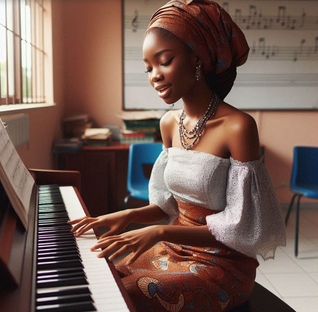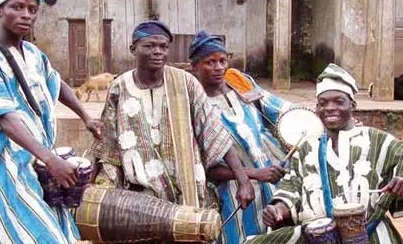
support@yorubalibrary.com
+2348073529208, 07038599574

Music holds a significant place in Yoruba culture, playing a crucial role in rituals, celebrations, and daily life. Music therapy, the use of music to improve health and well-being, has deep roots in Yoruba traditions.
Historical Significance of Music in Yoruba Culture
Music in Yoruba culture is more than just an art form; it is a powerful tool for communication, healing, and community bonding. Historically, Yoruba people have used music to:
(i) Tell stories
(ii) Convey emotions
(iii) Connect with their ancestors
Music Therapy Practices
Yoruba music therapy involves various elements such as drumming, singing, and chanting. These practices are believed to have therapeutic effects, promoting physical, emotional, and spiritual healings.
Healing with Drumming
Drumming is a central component of Yoruba music therapy. The rhythmic patterns are thought to align the mind and body, creating a sense of balance and harmony. Specific drum beats are used to address different ailments and conditions, including:
(i) Stress and anxiety
(ii) Physical pain
(iii) Emotional disturbances
Community and Social Bonds
Music therapy fosters a sense of community and strengthens social bonds. Group activities such as singing, drumming, and dancing create a shared experience that promotes unity and collective healing.
Modern Applications
In contemporary times, Yoruba music therapy is gaining recognition beyond cultural boundaries. It is being integrated into modern therapeutic practices, offering alternative healing methods that combine traditional wisdom with modern techniques. Some modern applications include:
(i) Use in mental health therapies
(ii) Integration in wellness programs
(iii) Adoption in stress relief workshops
Conclusion
The benefits of music therapy in Yoruba culture are profound, encompassing physical, emotional, and spiritual healing. This ancient practice continues to thrive, providing a rich source of wellness and cultural heritage

The unique styles of Yoruba Bata and Dundun dances…

The emergence of new age social media and impact i…